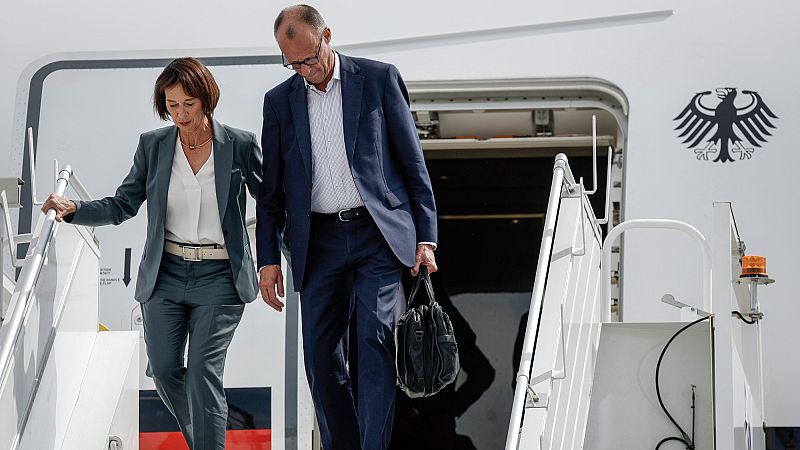
Germany’s economic confidence surged in June, as financial experts turned sharply more optimistic about the outlook, brushing aside earlier fears of trade disruptions.
The ZEW Indicator of Economic Sentiment for Germany jumped by 22.3 points to 47.5 in June 2025, marking its highest level since the three-year peak of 51.6 in March and well above consensus forecasts of 35.
The current situation index also improved, rising by 10 points to minus 72.0 — the largest monthly gain since April 2023.
“Confidence is picking up. In June 2025, the ZEW indicator sees another tangible improvement. Recent growth in investment and consumer demand have been contributing factors,” said ZEW President Professor Achim Wambach, PhD.
He added that expansionary fiscal policy and the latest interest rate cuts by the European Central Bank could finally lift Germany out of its nearly three-year stagnation.
Sentiment also brightened across the eurozone, with the ZEW index climbing by 23.7 points to 35.3, well above expectations of 23.5. The current assessment for the bloc improved as well, up 11.7 points to minus 30.7.
Investors are positive on Europe and Germany
Investor sentiment towards Europe remains broadly positive, as highlighted in the latest Bank of America Fund Manager Survey, which gathered insights from over 100 market professionals.
A net 29% of respondents anticipate stronger European growth over the next twelve months, sustained by expectations of German fiscal stimulus.
The outlook for European equities remains upbeat. A net 34% expect gains in the months ahead, and 75% see upside over the coming year, matching February’s high.
However, risks persist, with 68% of European investors citing the Trump administration’s policy stance as the top threat to global growth, followed by concerns over a weakening US consumer, cited by 29%.
Stocks fall as Israel-Iran tensions escalate
Despite the encouraging ZEW data, European stock markets fell sharply on Tuesday as escalating tensions between Israel and Iran weighed heavily on investor sentiment.
The German DAX dropped 1.2% to around 23,400 points, its lowest since 8 May, reversing Monday’s gains. The retreat was part of a broader risk-off move sparked by rising oil prices and growing geopolitical unease following US President Donald Trump’s abrupt exit from the G7 summit in Canada.
Trump’s decision, which he said was unrelated to ceasefire negotiations, further clouded prospects for de-escalation in the Middle East. Investors were rattled by the prospect of prolonged conflict, which revived concerns over oil supply disruptions and pushed up inflation expectations.
The biggest losers on the DAX included Fresenius Medical Care, down 5.13%, Commerzbank down 3.14%, Rheinmetall down 2.52% and Deutsche Telekom down 2.34%.
Across the European banking sector, shares declined as well. AIB Group dropped 3.5%, Banco Santander lost 3.1%, while Commerzbank, Societe Generale and UniCredit each fell by 3%.
Investor caution grew ahead of the US Federal Reserve’s two-day policy meeting, which concludes with a rate announcement on Wednesday.
Although traders broadly anticipate no change in interest rates for the fourth straight time, escalating geopolitical tensions and a renewed uptick in oil prices have added uncertainty to the outlook for monetary easing.
In currency trading, the euro held steady at 1.1558 against the US dollar. Meanwhile, oil prices advanced, with West Texas Intermediate up 1.6 percent at $72.92 per barrel and Brent crude rising to $74.50.







